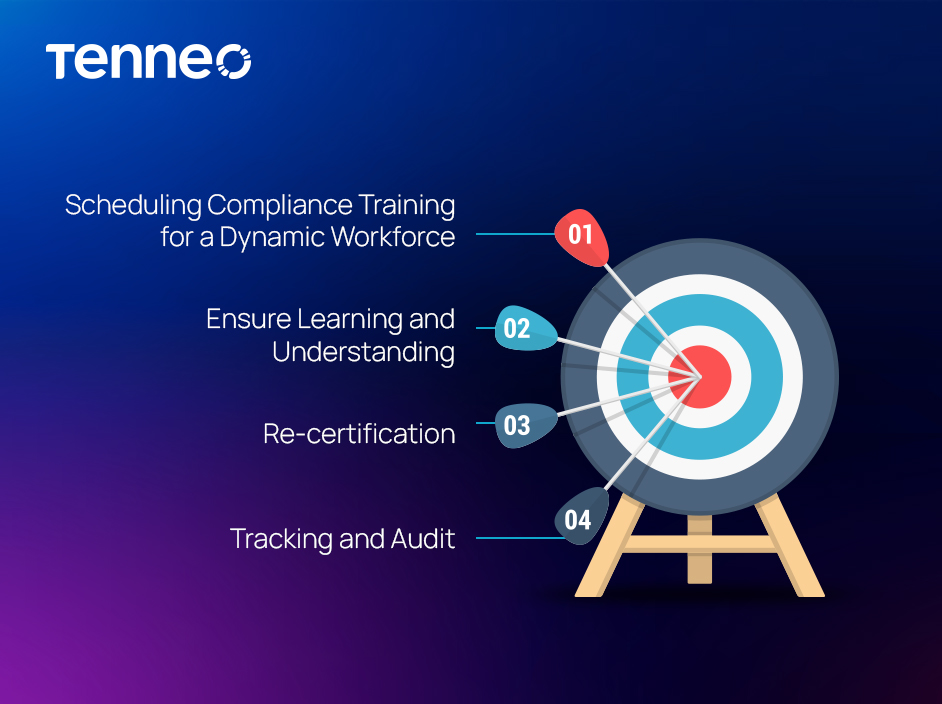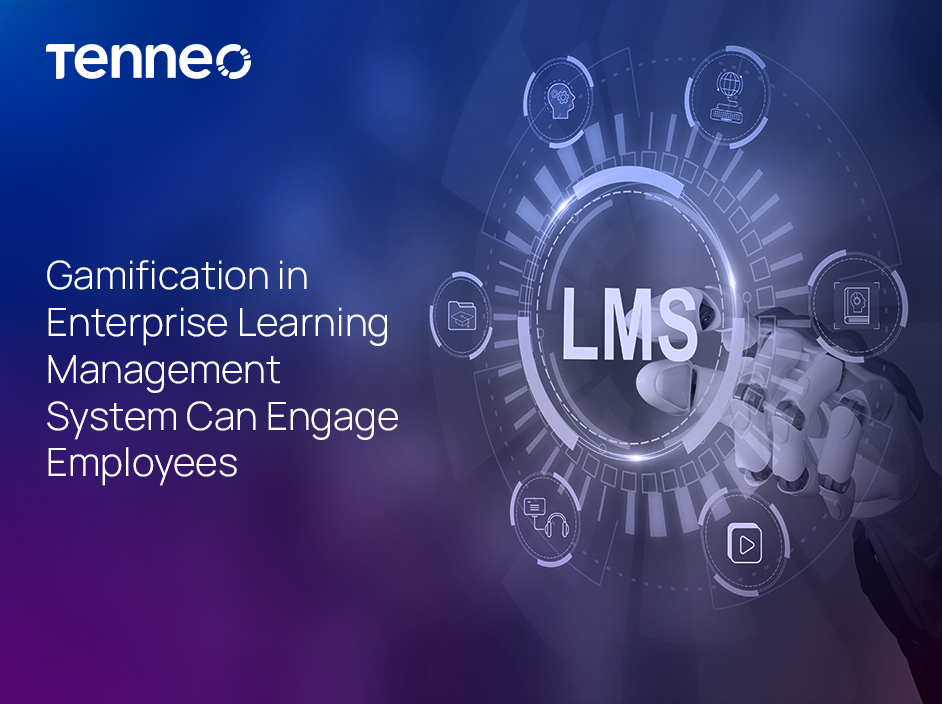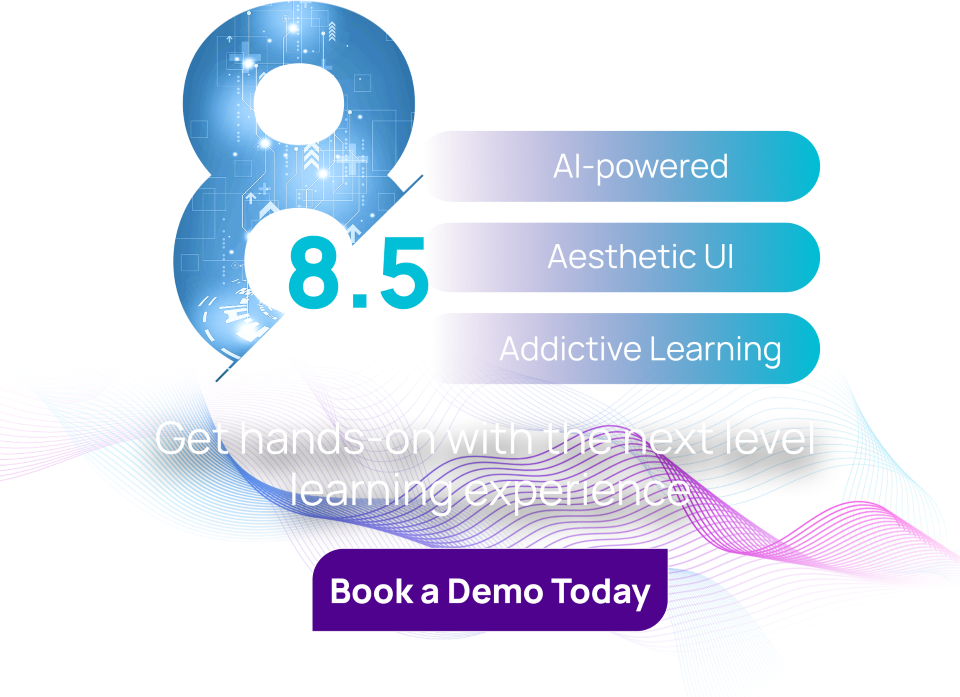
BFSI LMS: Automated Compliance Training for Branch Operations
May 31, 2023
Gamification in Enterprise Learning Management System Can Engage Employees
May 31, 2023
BFSI LMS: Automated Compliance Training for Branch Operations
May 31, 2023
Gamification in Enterprise Learning Management System Can Engage Employees
May 31, 2023Blog - 22 Mar 2023 | 6 Min
Compliance Training Struggles of the Pharmaceutical Industry – Decoded.

The quantity of certifications necessary within the pharmaceutical (pharma) industry is mindbogglingly numerous. Indeed, Pharmaceutical formulation, pharmaceutical transfer processes, GLP, GMP, Clinical Compliance, Process Validation, Global Regulatory Affairs, Document Management, GMP (Good manufacturing practice) QSR, and CMC hazardous drugs are all certifications required in this line of work; however, one should remain vigilant surrounding the warnings of the Food and Drug Administration (FDA) – the 483s. The FDA provides sterile and non-sterile pharmaceutical guidelines for industries; these are updated intermittently, especially concerning raw materials and other finished products. All FDA approved plants throughout the world need to be compliant toward these guidelines; therefore, to sustain the supply and demand chain for this life-saving industry, there is an ever-constant requirement for pharma companies to ensure ongoing compliance. Background: In the pharma industry, each and every individual working in all aspects, from the research to the sales teams, needs certification to perform their particular job; indeed, every task, job, instrument, and process has a related standard operating procedure (SOP). There is also a requirement to maintain complicit adherence to the mandatory information security guidelines related to the specific country or region of operations. The training function has unsurprisingly become an integral part of this entire process as each certification has a related training scheme. The compliance related training process in the pharma industry is not only time-consuming and exhaustive but also simultaneously expensive. It is suggested to read this article and familiarize oneself with the process to reduce costs by automating training for SOP changes. The business of a pharma company can be broadly divided into two parts, thus: Manufacturing and Sales. Both functions have a heavy compliance requirement; however, if we examine in isolation what is necessary to meet legal requirement, then there are three important factors to consider. Course Completion: Whether employees are completing requisite certification training. Timelines/Deadline: Compliance training usually must be enacted periodically to maintain pace with regulatory alterations. Record/Reporting: Data management needs to be effectively gauged as well as “drilled down” compliance status prevalent within the organization or specific department. One must note that training and certification is a document and information biased process and that 21 CFR part 11 of the FDA guidelines mandates data integrity. According to pharmaguideline.com, “The aim of part 11 of 21 CFR rules is to promote integrity of the usage of electronic records and signatures, such that the data is not distorted, deleted or manipulated in any way which would compromise the delivery of services. The pharmaceutical practitioners are, therefore, required to maintain a high degree of compliance with these rules to enhance reliability and trustworthiness of electronic records, as well as signatures.” It is thus imperative for the Pharma-specific Learning Management System (LMS) to be compliant to these guidelines. It does not, however, end there; to follow is a list of critical tasks, all manageable on the Pharma LMS, which can ensure a reliable degree of ease and efficacy in compliance training.
- Categorize and assign compliance conditions in the form of certificates regarding specific job roles.
- Ensure continuous monitoring of compliance conditional status. Accurately record details of all related activities as way of evidential compliance during audit.
- Define all requisite conditions to be met in terms of certification, in conjunction with their targeted time frames, thus enabling traceable compliance efforts, which can be corrected if needed in a timely manner.
- Provide a definition of the requisite extra information when applying for a particular compliance.
- Utilize wisely the information collated during inspections and audits. Recommend corrective actions to ensure efficacy in the event of certain project elements not meeting compliance standards.
- Demonstrate to all stakeholders, such as vendors, lenders, government regulatory agencies, and others, that obligations are being met within the targeted time frames.
Technological advancement has brought with it the ease of conducting business to various industries; indeed, the training industry is now bustling with innovative practice. Tenneo (formerly Tenneo (formerly G-Cube LMS) LMS) LMS, with its in-built compliance management system, is the one-stop answer for all your compliance queries. For more details, please write to us.
Related services
Product Engineering

